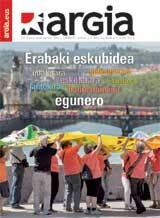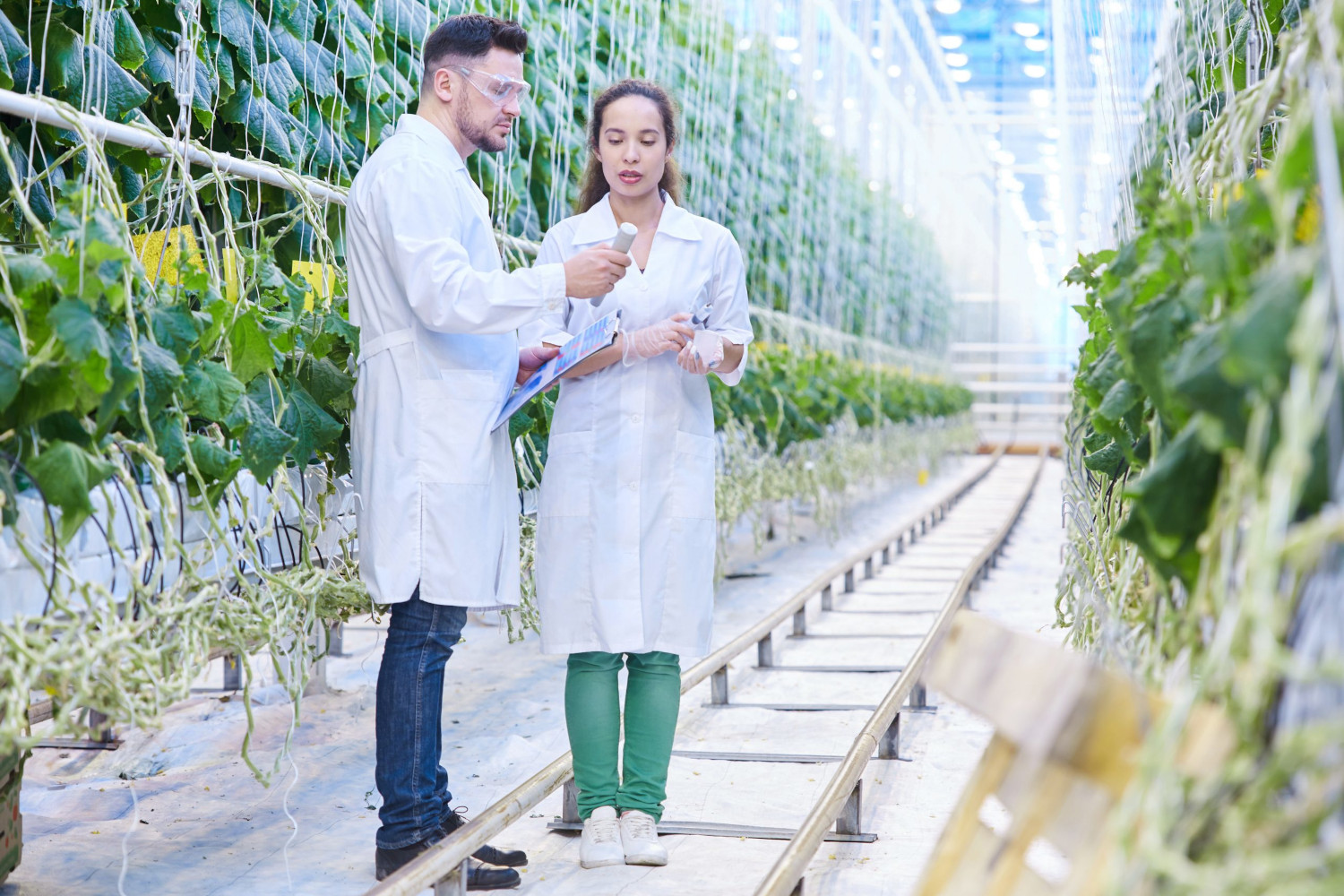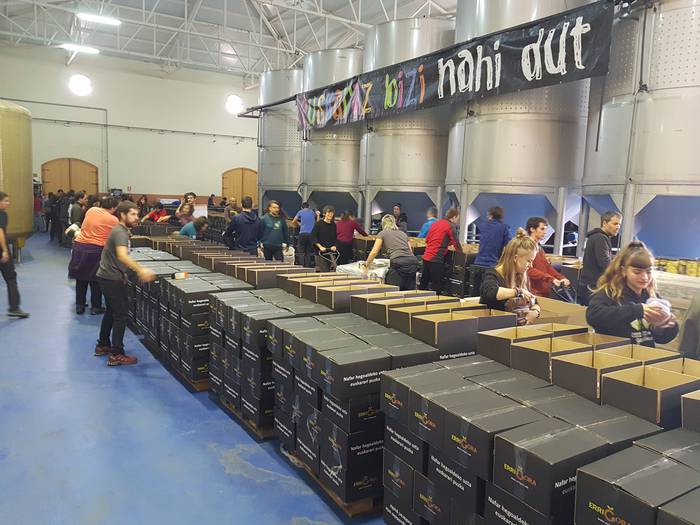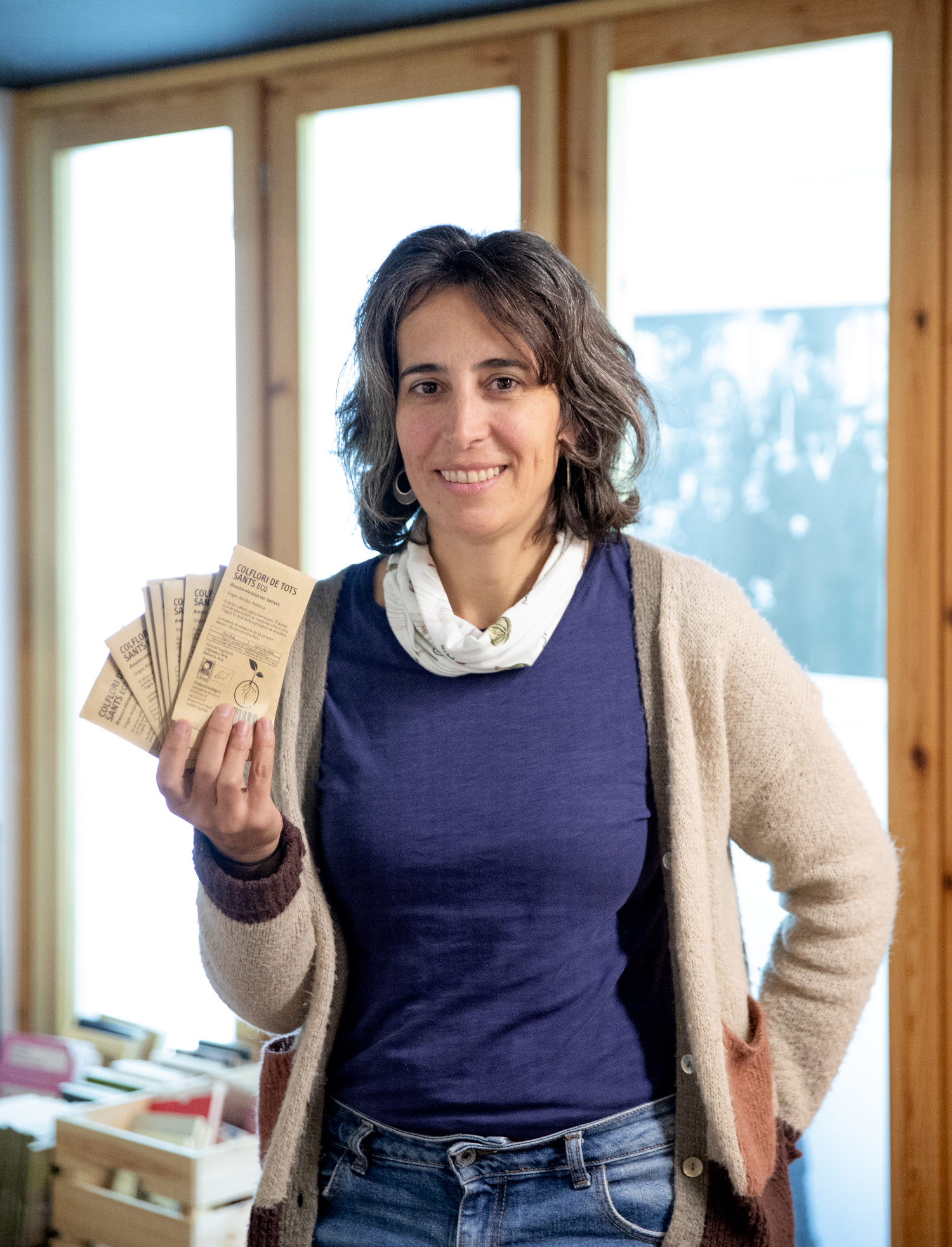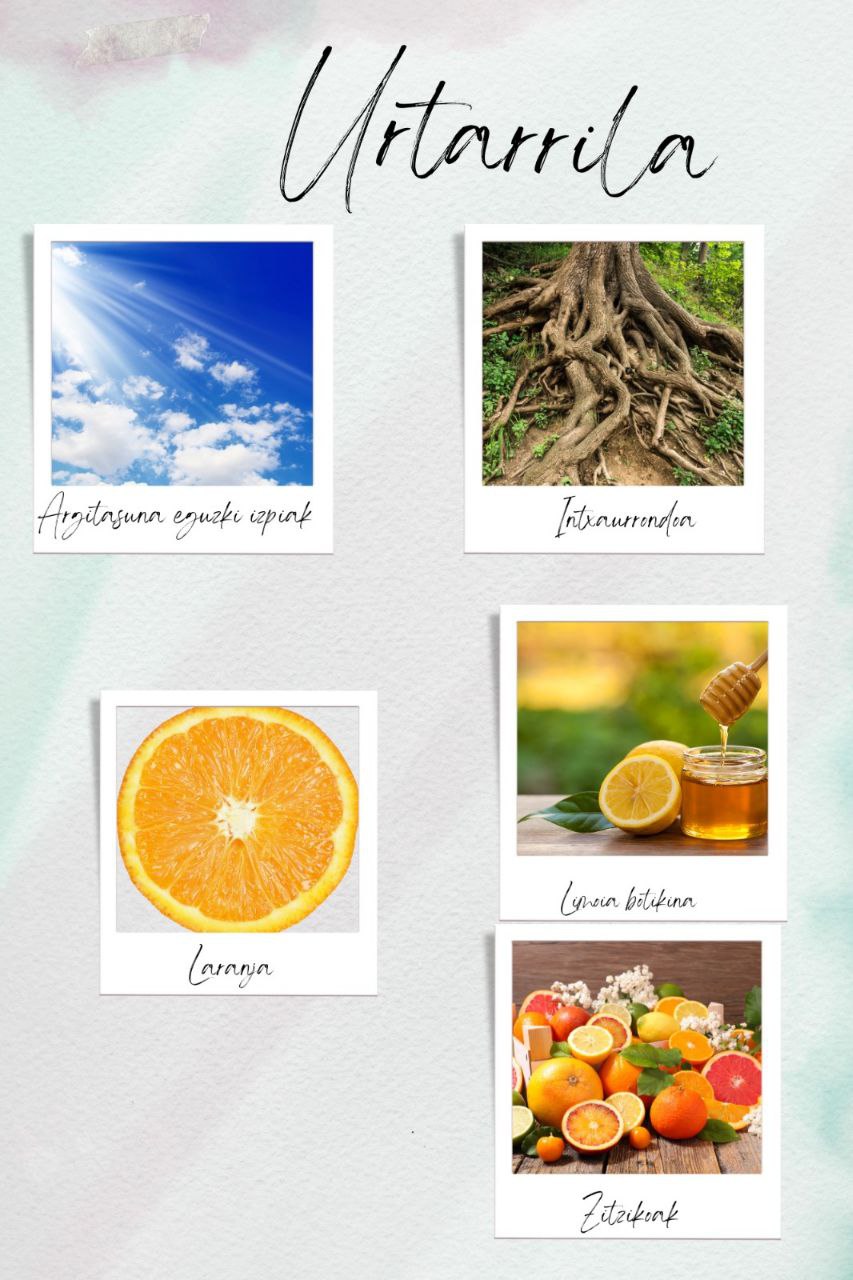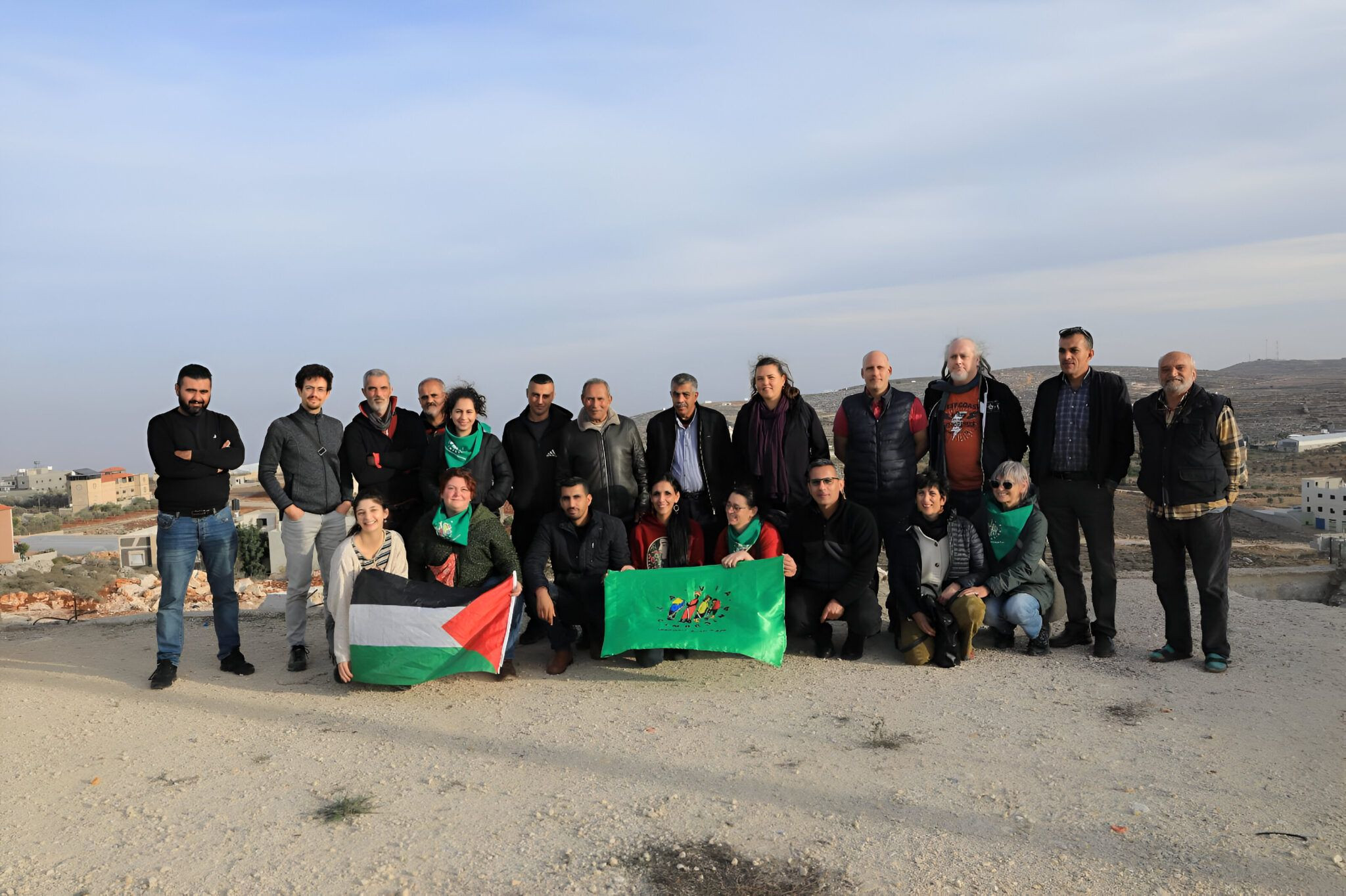The dining room of the workers as an engine of enrichment of the environment
- The restaurant Diametro 200, located in the cooperative Orona de Hernani, serves local, seasonal and, if possible, ecological products: 170 people a day eat healthy, of which 140 are Orona workers. They have a very special kitchen that bets on the transformation of food from the beginning to the end. This business dining model that strengthens the primary sector of the area can be pioneering. This is the hope that in a few years more companies will be added.
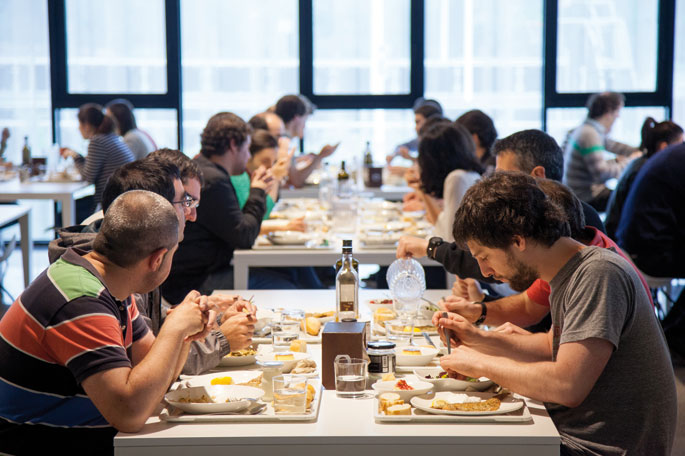
Iñigo Marquet, Director of Development at Orona Fundazioa, explains how they came to set up a dining room that serves local and seasonal food: “When we arrived at the camp of Orona Ideo, the works were practically completed. The first course of the Foundation had begun. But we still didn't have the canteen to give the dining room to the workers. We reflect on: The Orona Ideo project has sought to go further in innovation in all areas. When we put the canteen we also had to go further, it had to be consistent, for example, with the building that supplies renewable energy to heat up.” He tells us that, in addition to the environment, they took into account his staff: “How is it guaranteed today that we are going to give people healthy food? With local, seasonal and, as far as possible, organic products. It’s an exercise in corporate responsibility: we care for our people, giving them healthy eating every day.”
She appreciates that they have the opportunity to develop a socio-economic food-based project: “Today there is not enough production in the environment to set up a food model like this. We have wanted to turn this problem into an opportunity; our demand allows us to develop the primary sector in our environment: enhancing local production, enhancing the productions of the time... and when we strengthen the primary sector we are not only strengthening an economic sector, but we are also strengthening culture, caring for the environment...”.
Choice of size of each pocket
On the upper floor is the canteen of the workers: the menu of the day is offered, as a self-service (to be collected). The street people can also eat there, among the workers of Orona. They have several options: Salad, potage and puree every day, plus a first dish, two seconds to choose from and a dessert. Marquet just smiled and said: “From time to time they give us small surprises, international gestures (Mexican tacos...)”.
In the cafeteria on the ground floor they offer a letter, they serve more elaborate dishes. And they also have another dining room with a higher kitchen for visitors from outside the world who come to Orona. Three offers therefore, each with its price.
They also prepare cocktails and moles for events held in Orona Ideo.
Outdoor cooking
The cook and owner Fede Patxa Goikoetxea has proudly explained the working conditions of paradise in the hospitality industry: “In our kitchen we work for eight hours in a row from Monday to Friday (weekend and free holidays). We have holidays in August, Christmas and Easter Week. This is largely due to the fact that we are linked to Orona’s work schedule. But we could open the cafeteria that gives menus to outside customers on weekends, in August -- and we don't want to do it. We want our cooks to be at ease. This means that our team’s staff are very much involved in the project. Many tell me what is now with the children...”.
In this kitchen is as striking as the working conditions, the way of working, which aims to do everything in it: “We bring our philosophy of food to the extreme. Nothing prepared industrially is included. If we need minced meat, we do. Sausages are made by us. The tomato sauce is made by us. The biscuits are made by us. Total transformation. Think, we bring the whole cows and we take them off the skeleton!” He stresses that what should be normal is an exception: “In kitchens, less and less is done in the kitchen. Today you can put the kitchen and receive 100% of the prepared food. You don't need cooks! You need those who know how to redo and those who serve. And we want to do it in the kitchen, we want to work the food from start to finish. This goes against what is being done in today's kitchens, I am aware. I would say that vegetables are also washed in many restaurants.”
Season, from start to finish. It shows the main evidence of this: “In the restaurant kitchen, the queen is a giant freezer. We don't have freezers. We have two small heels to store the leftover stuff, etc. We try to do all of us, even some loaves! We also make fresh pasta. We will finish, little by little, doing everything. The ultimate goal is not to introduce anything transformed (bread, dried pasta...). It’s more work, it’s more labor, we have to pay more hours of pay, but our goal is not to make as much money as possible.”
“The accelerators we have offered today have been taken from Karabeleko’s orchards in Hernani at 8 a.m., they have come to our kitchen at 9 a.m., we have prepared them and at noon we have taken them out. For our team, 170 diners a day aren't too many. This allows us to prepare practically every day. That, in a dining room that offers a menu of these quantities, is a luxury.” He explains that they have a good dynamic: “On Friday we recycled what we’ve put in during the week. We changed the menu every day and served the rest on Friday. Thus, the workers have the opportunity to taste what they left for envy the day before.”
Profitability
Marquet asserts with certainty that a dining room like this is worthwhile: “From an exclusively economic point of view, it is certain that the company can provide something economically more profitable. But we don't just look at that. We are caring for our people and we are having an impact on our environment.” Part of the cost of the workers' meals is borne by the cooperative and part by the worker. In Marquet’s words, “the workers here are willing to pay a little more, so in exchange for eating.”
Recognize that external customers help them complete the numbers: “That’s how we cover the extra cost the restaurant can have. In the area of Orona Ideo there are daily meetings, congresses, people from outside... Companies that are closed to the public and provide services exclusively for their own staff should bear a higher cost. In any case, everyone values the importance of each thing. Apple and Google make gyms of all kinds available to workers. We are not going to make that investment, but we do invest so that workers eat healthy everyday.”
Prospective development
Marquet has said that “our vocation is to put this model in other Orona workplaces in the future. We’re working towards it.” Other companies, some of them cooperatives, the Mondragon Group and others not, have also shown interest in this project and are analysing what it would mean to start up in their company. Marquet is pleased: “You’ve seen that the system here is really workable. I would say to other companies that they take a serious look at it: it is possible and the benefits are very good. Our workers are happy, they value the project and they know that with their daily food they are generating wealth around. It’s the future.”
The chef Patxa faces a new challenge: “We have to get the workers in the area to come to eat and the street people to grow up in the cafeteria. But little by little. There’s no hurry, the important thing is to get it right.”
Jatetxearen kudeaketa kontzesionario baten bidez eramaten da, Gure Elikagai Elkarte Mugatuaren bidez: bi bazkide dira, jabetza erdibana dutela. Bata bertako sukaldari eta zuzendaria, Federiko Patxa Goikoetxea. Eta Lur Lan elkartea bestea. Langileak hartzerakoan ere inguruan bizi dena lehenesten dute.
Duela urte eta erdi sortu zen Orona Fundazioa, Orona Ideo proiektuaren eragile nagusietakoa izateko. Fundazioan lau langile ari dira lanean. Bertako Garapen zuzendari Iñigo Marquetek azaldu duenez; “Orona Ideo, etorkizuna irabazteko proiektua da: Bere bidez, berrikuntzak are indar handiagoa hartzen du Oronaren barruan.
Fundazioak kanpora begira ingurua garatzeko misioa du, arlo sozioekonomikoan, kulturalean eta abar. Eta barrura begira, Oronaren giza kapitalaren garapena du misio, epe luzeko formazio proiektu sendoarekin. Elikadura proiektua ere barne misioari lotuta dago, lortzen duguna baita osasuntsu janez gure jendea zaintzea”.
Bizkaigane elkarteak elikadura burujabetzan oinarritutako proiektua du Errigoitin (Bizkaia), 1983tik. Instalazioak dauden lur eremutik aterarazi nahi du lur jabeak elkartea. EHNE Bizkaia sindikatuak adierazi duenez, instalazioek lege eta administrazio eskakizun guztiak betetzen... [+]
Martxoaren 10etik 26ra izango da udaberriko kanpaina. 'Beste modura, denona de onura' lelopean arituko dira gertuko ekoizpena, banaketa eta kontsumoa babestu eta sustatzeko, ager zonaldean euskara hauspotzen duten bitartean. Apirila amaieratik aurrera jasoko dira... [+]
Euskal Herriko bi muturretatik datoz Itziar (Bilbo, 1982) eta Ekaitz (Erriberri, 2002), sortzen ari den Burujabetzaren Aldeko Mugimenduaren berri ematera. Euskal Herrian diren burujabetza prozesu ugariak arloz arlo bultzatu eta indartu nahi ditu BAMek. Lan horretan hasteko,... [+]
Emakume bakoitzaren errelatotik abiatuta, lurrari eta elikadurari buruzko jakituria kolektibizatu eta sukaldeko iruditegia irauli nahi ditu Ziminttere proiektuak, mahai baten bueltan, sukaldean bertan eta elikagaiak eskutan darabiltzaten bitartean.









